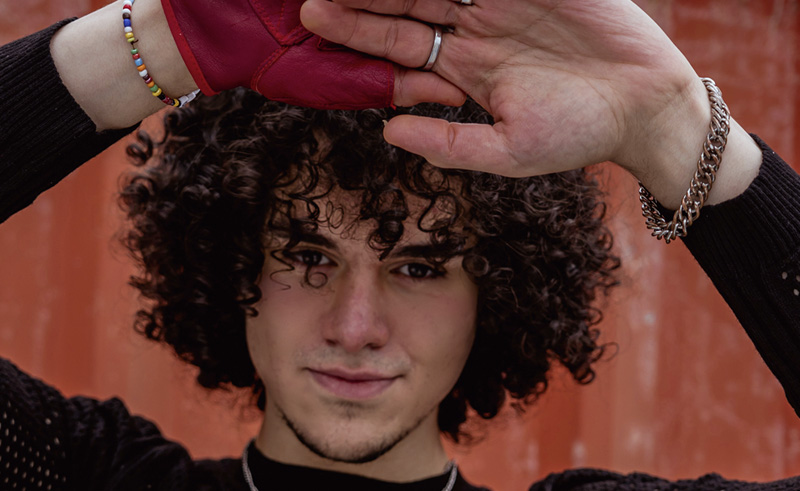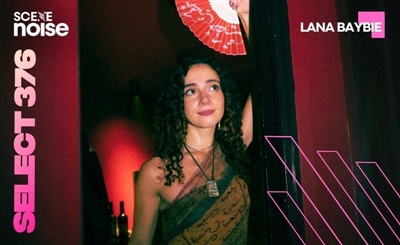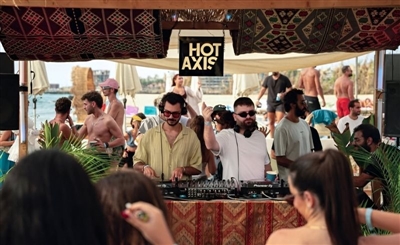Artist Spotlight: Bahjat, the Libyan Artist Defining A-Pop
In this Artist Spotlight, A-Pop artist Bahjat opens up about leaving his home in Libya, the importance of social media in his career, and the love he has for his fans, the ‘Bahjat Troops’.

With tracks clocking in millions of views across digital platforms, Libyan singer-songwriter Bahjat has managed to capture the attention of his generation with his soulful singing and emotive music. His breakout singles, ‘Istanbul’ and ‘Hometown Smile’, have garnered him over 40M streams and 150M+ YouTube views.
Born in Benghazi, Libya, Bahjat began his musical journey at a young age, and attests to being “influenced by the rich cultural traditions of his homeland." According to the artist, “he is driven to prove that it’s possible to create relatable, emotionally-driven songs that connect with listeners around the world.”
By the age of fifteen, it became clear to Bahjat that he wanted to pursue music, and began uploading cover songs to YouTube. A few months later, in 2011, the onset of war in Libya broke out, forcing Bahjat and his family to flee his home in Tripoli for Malta. Bahjat and his family lost everything and became refugees. But along the way, his pursuit of music only strengthened as he learned to find a new home within each song, where he keeps his heritage alive by using Libyan dialect in his lyrics, the rhythms, and the visual references within his videos.
In this interview with SceneNoise, Bahjat sheds light on his body of work and his approach to A-Pop music, a genre of music that he calls a blend of “Arabic and English lyrics with Western and Middle Eastern stylistic influences.” He also talks about the importance of social media, particularly TikTok in his life and musical career thus far, as a bridge connecting him to his loyal and loving fans, known as the ‘Bahjat Troops’.
See here to watch the interview, or read the full Q&A below:
How old were you when you started singing?
According to my mom, I started singing when I was like two years old, which is quite telling of how I lived the rest of my childhood. I was a very introverted kid and I often sang about my problems in my bedroom rather than talk about them to anybody else.
When did you start making music?
I picked up the guitar when I was about 12 and I'd been playing the keys by ear since I was like six or seven. But my first release was a song called Stand Tall, which is a very special one to me because I wrote it about unity and about how being different is the only thing that we all have in common.
When did you start finding success in music?
My first viral song was a song called Hometown Smile, which blew up when they got posted on a Night Corps remix channel. And I think now it has over 150 million views combined, which is just insane. It means a lot to me because I wrote Hometown Smile about re-teaching myself the concept of home. When we fled the war in Libya. It was really difficult for me to kind of still live with that mindset that home is a physical place. So I think after moving, I realized that you can find home in the smile of anybody that loves you unconditionally.
What was growing up in Libya like?
Growing up in Libya was quite normal for me. We had a routine of life. We went to school, we did all the things that kids in the Arab world would do back in the day. There wasn't much of a local music scene when I was growing up, sadly. The most popular acts were the traditional wedding bands and singers, which, as a kid or a teenager, are pretty hard to relate to lyrically.
Who were your musical influences growing up?
I grew up listening to Amr Diab and then all the classics like Fairouz and Abdel Halim. My mom also had a big collection of Western pop, like Michael Jackson, Abba, and Madonna. So I've always been surrounded by this collision of East and West.
Were you inspired by traditional Libyan music?
I think traditional Libyan music inspired me in many ways. If you think about it, it's quite like pop at the core of it, in the sense that traditional music, at least in Libya, has a lot to do with call and response and rhythms and tempo and making sure that it's an engaging experience. I think that's also at the core of pop music. So traditional Libyan bands specifically really inspired that in my songwriting.
How do you incorporate your Libyan heritage in your music?
I incorporate Libya in my music by using my Libyan dialect, the sounds in production, the rhythms, and yeah, sometimes the imagery. I'd say that my greatest Libyan influence, besides the traditional bands and artists, is Ahmed Fakroun.
How has social media impacted your music career?
Social media has been an amazing tool in my career. It's really allowed me to speak to the people who have experienced the same things that I’ve experienced. I started writing music because I felt misunderstood by everyone around me, and I started sharing music because I was wondering if maybe somebody out in the world feels what I feel. Then I got lucky enough to find a group of people who connected with my music, and now they're called Bahjat troops. It's been a lovely journey where we heal together. Platforms like TikTok allowed me to reach out to people in a much more genuine and spontaneous way than I'd ever done in my life before. For example, I've probably spent over 100 hours on TikTok life interacting with my fans, the Bahjat troops. And it's quite interesting because I've never been more myself than I am right now on social media.
How did you feel when you found out about winning the TikTok Nakheel contest?
It was so surreal when I was told that I had won the contest. It means so much to me because it's something that I, as an independent artist, achieved with my fans. They were really there for me. It feels like such a beautiful moment where we got to truly see that you can have your song get played at the biggest fountain in the world as an independent artist without having to compromise anything about your art. I'm just really grateful for TikTok and Nakheel for providing independent artists opportunities like this, where we get to share our music with the world. It gives me butterflies to, you know, think about how many people are going to connect with my music for the first time through that.
Tell us about your songwriting process.
The fun thing about songwriting is if you make it a habit, it's kind of like the concept of therapy, where there's always something that comes out of you. There's always something to process or reminisce about. It's truly amazing the things that come out of you when you sit down and you kind of put yourself on the spot. I write often and especially now that I'm producing more and more completely by myself, it's become a good exercise to keep myself writing and producing and writing and producing.
What countries in the region do you think connect with your music the most?
Lately, I've been lucky enough to get support from all over the Middle East and North African region. I make A-pop music, which to me, is the response to globalization and cultures intertwining in music, like with K-Pop or reggaeton. Finding support from the Arab youth and my generation is amazing, since they think: “yeah, this is cool, this represents us when we text and the style of music that we listen to.” My concept of A-pop is constantly evolving. So it started with me having separate English and Arabic sections, but then with my song ‘I'm Here’, I started to mix both languages within the same sentences. It's kind of very fun because it feels like there are no rules. So I feel free to just express myself.
What was it like working with Hassan Al Shafei?
It was such a fun and spontaneous experience. As an independent artist. I realized very early on that I needed to not only become a musician, artist, producer and a songwriter, but that I also needed to be a good networker to stand a chance of getting my music heard. I used to send around 100 emails per day. I was that annoying person who would be like: “hey, did you happen to check my email which I have already sent you about 300 times before?” Hassan was one of the people I reached out to because I listened to one of his songs and I felt like it was close to what I consider to be A-pop; which is Arabic-infused, Western pop production. So I reached out to him and he replied the next day and we exchanged ideas back and forth. I ended up writing and composing ‘Galbek Wein’ by myself, and he did the music production and it was very fun.
Are you releasing any new music soon?
My goal for this year is to put out a lot of music and hopefully get to perform to my fans very soon. And this might be an exclusive announcement, but I think I might be dropping a Ramadan song for the first time ever.
- Previous Article test list 1 noise 2024-03-13
- Next Article #RememberWhen: Amr Diab's Songs Were Stolen
Trending This Month
-
Jan 29, 2026






















